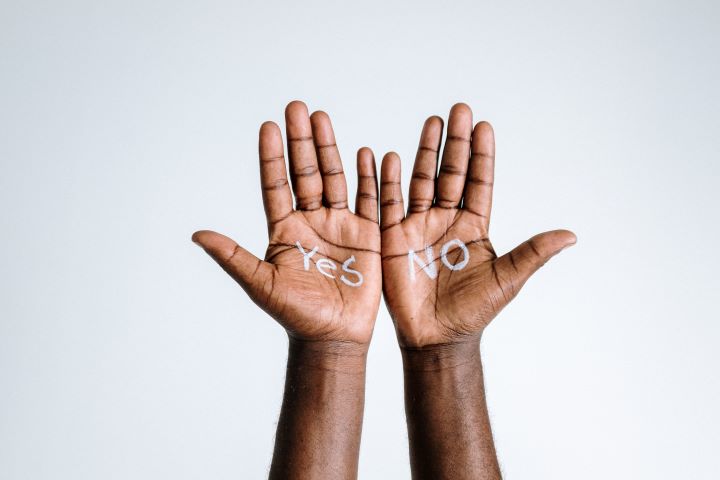For the number of choices Americans have for food, clothes, cleaning products, worship, social media, etc., one would think we could move beyond either/or thinking.
Either/Or Questions I Hear These Days
Most recently, the question of whether one supports Israel or the Palestinians has been asked. Choosing one over the other, unless one is Israeli or Palestinian, is difficult. If someone asked me that question, I would say that I do not support terrorist attacks or attacks on civilians, so I do not agree with the decision-makers in Israel who are threatening Palestinian lives with bombs and withholding supplies. I also do not support the kidnapping and killing of Israelis on October 7. Otherwise, I support both sides in their efforts to live peacefully together.
Because of the basic two-party system in the United States, other people assume that an American is either a Democrat or a Republican. And it is not enough to be put in one category but there is an additional assumption that this person agrees with almost all the views that the party embraces.

Nuanced Thinking
What if someone asked you to which major party you belonged (and you did belong primarily to one)? You might say, “I often vote for Democrats on social, foreign, and economic issues but lean towards Republicans on moral issues.” Many people believe that a person is either in one camp or the other camp. Or what if you tell them that you read over all the candidates’ statements, no matter the party, so that you end up voting for their plan rather than their party? (In the state of Washington, one can vote for either party in elections. We do not have to declare a party.)
If someone asks if you are pro-abortion or anti-abortion, you could just respond by saying that your view is more nuanced than pro or con. You might say that you would like to see as few abortions as possible because you would like society to be pro-life. We need to deal with violence against women, healthcare, views of sexuality, unequal pay for women, domestic violence, poverty, and a host of other issues. Only then can we legitimately say that we can replace all abortions with live births OR create situations where women do not often become unintentionally pregnant,
I was on Twitter/X when someone asked this type of question, “Has feminism contributed to the decline of America?” The first person who responded thought that feminism has harmed the country. Her definition of feminism differed significantly from mine. I think if this type of question is posed, a yes or no answer is impossible. First, a definition of the word “feminism” must be suggested or agreed upon as well as the concept of decline.
Either/or Thinking Can Be Used to Judge Others
In Catholic Twitter, there has been debate about who is really Catholic. Some members of the church believe that if a person accepts gay people or birth control that he or she is not a true Catholic. Another group thinks that one’s contributions to society, especially to the poor and vulnerable, is the mark of a true Catholic. I am personally not interested in who is truly a Catholic and who is not. I think that maybe God could determine that for each person. God likely appreciates the faithfulness many Catholics have to Church teaching AND likes when Catholics try to ease the sufferings of others.
Why Do We Tend Towards the Yes or No Questions?
I have a few theories on this. Actually, I think it is easier to think of people falling into one known category or anotherknown category. It is also quicker to get a sense of who someone is by asking a question that requires a yes or no answer. To really get to know someone, however, is to learn how they think with greater complexity.













